Composting is one of the easiest ways to implement recycling into your everyday life, a home-based practise that’s simple, satisfying and kind to the planet. While it’s typically done year-round, late summer/early winter is the peak time for making compost, so it’s an ideal time to start making use of your waste.
Composting for small gardens
Don’t be discouraged if you want to put your kitchen and garden waste to use, but live in a property with a small garden – composting needn’t take up much space. Alongside our heavy-duty Callis composter, we also offer the Redacre and Callis Compact bins, both perfectly suited for those with limited space to work with.
The Redacre is a single, open compost bin that is perfect for smaller gardens, or those only composting kitchen waste. The black plastic also absorbs and stores thermal energy, releasing it slowly to speed up the composting process, so it’s a great choice to get you started quickly and easily.
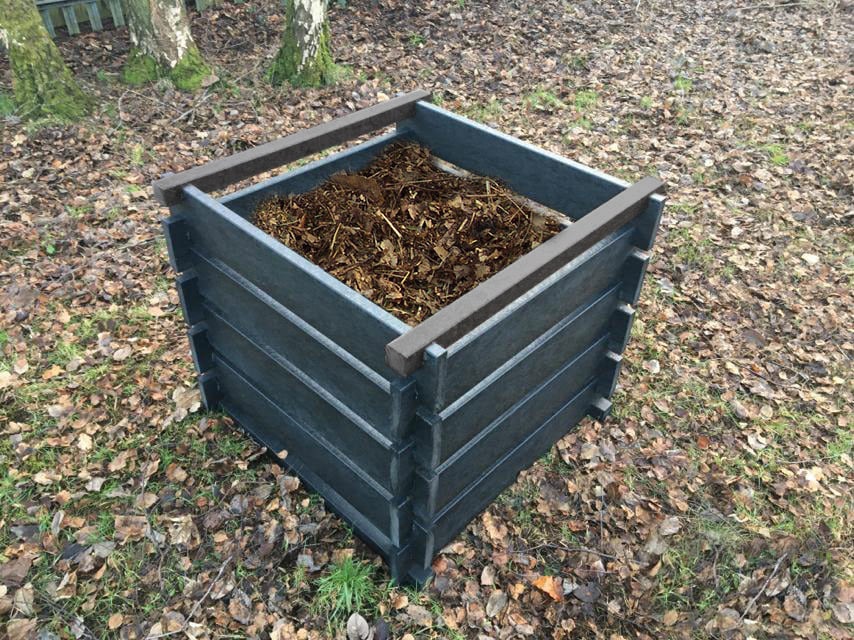
The Callis Compact Narrow Profile bin is a smaller 500mm bin, offering more options for those with limited space. Available with single, double or triple bins, it’s an excellent choice for balconies and urban gardens. The Callis Compact also has optional lids available – a very useful addition for keeping pests at bay. You may find your scraps of fruit and veg attract lots of fruit flies, which can be a nuisance, so lids are a great way to avoid that.
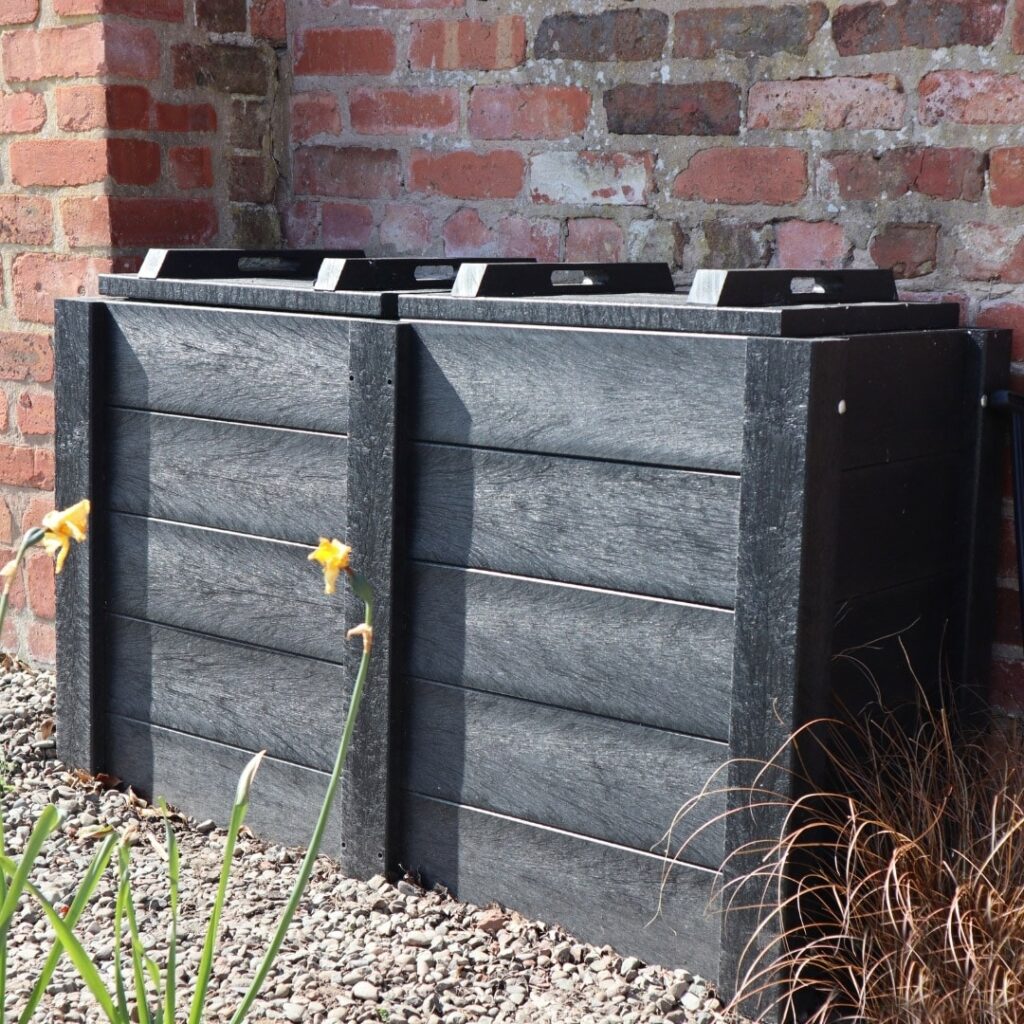
Composting with two bins
It’s definitely worth considering composting with two (or three) bins if possible, as it brings numerous benefits. While single-bin composting works for many people – especially those with smaller gardens – a two-bin system allows continuous composting, so you don’t have to wait for one pile to completely decompose before starting another.
Also, fibrous materials that are slower to decompose can be removed when you are ready to finish the current pile, and placed in the adjacent bin with the new compost. Two bins also allows you to store finished compost as required, so you have a working pile for new materials, and ready compost when needed.
Balancing composting materials
It’s important to balance your ingredients correctly to produce the best quality compost. As a general rule of thumb, you should aim for between 25 and 50 percent green materials, with the remainder being woody brown material.
Green materials rot quickly, are rich in nitrogen and have a high moisture content. They include:
• Annual weeds and nettles
• Veg peelings and banana skins
• Fruit peel and pulp
• Coffee grounds, tea leaves and bags
• Cut flowers
• Grass clippings
• Soft garden prunings
• Old houseplants/bedding plants
• Rhubarb leaves
• Natural wool/cotton fibres
Brown materials rot slowly, are rich in carbon and have a high fibre content. They include:
• Dry leaves
• Shredded cardboard and paper
• Eggboxes
• Shredded hedge trimmings and wood chips
• Dead plant stems
• Animal hair
• Straw
• Wood ash
• Crushed egg shells
• Vacuum cleaner contents
As well as the vital ingredients, there are definitely some things you should never add to your compost pile. These include:
• Meat and fish scraps
• Dairy products
• Bread
• Coal ash
• Cat litter
• Glossy magazine paper
• Weed seeds
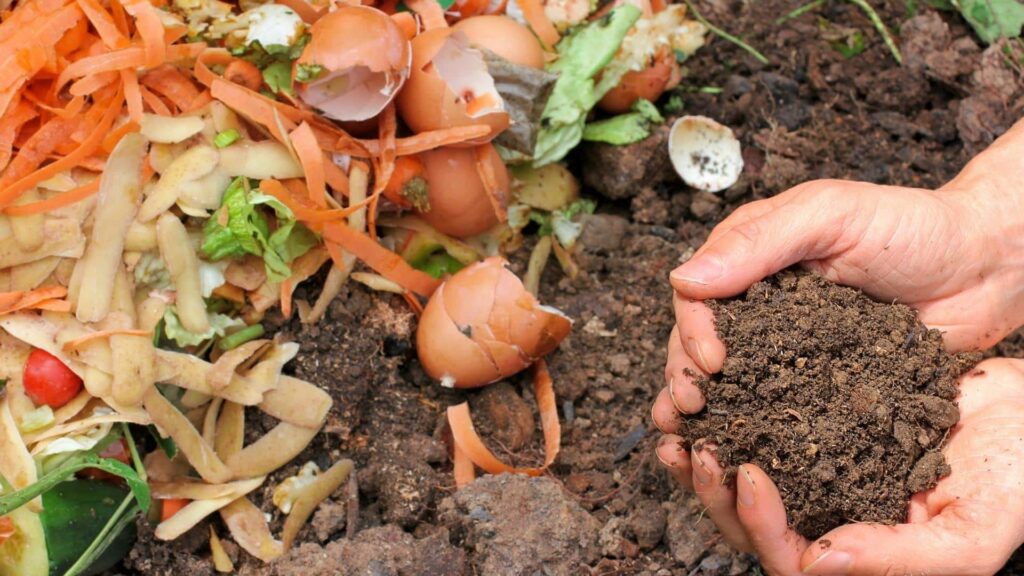
Composting tips
Shred and chop
Shred and chop all materials as finely as possible before adding them to the compost pile. Break down green and brown materials as much as you can – ‘the smaller the better’ is the general rule of thumb for all compost ingredients.
Turn the heap
Turning the heap and keeping things moving adds air to the mix, which is necessary for composting to occur. Emptying and refilling the container – maybe once a month – is a good way to improve air circulation, and this will also help to mix the greens and browns.
Add water (but not too much!)
Make sure the compost stays moist, add water if necessary, but avoid making the pile too wet – it should have the consistency of a damp sponge. This is where lids are also useful – covering the pile will prevent it from becoming too soggy and allow more accurate control of the moisture content.
Common composting problems
Pile is not composting
This is usually caused by insufficient moisture and too much brown material, which will prevent the pile from breaking down. Add more green materials, such as grass clippings. You can also buy a compost activator, which will add more nitrogen to the mix.
Slimy, strong-smelling compost
This is likely caused by too little air and too much water. Add more brown waste, such as chopped woody material, shredded woodchip, straw or paper. Then cover your compost with a lid to protect against rain and excessive moisture.
Flies
If you compost is attracting a lot of flies, try covering your kitchen waste with garden waste after adding it to the pile. And – as we have already established – lids are your friend!
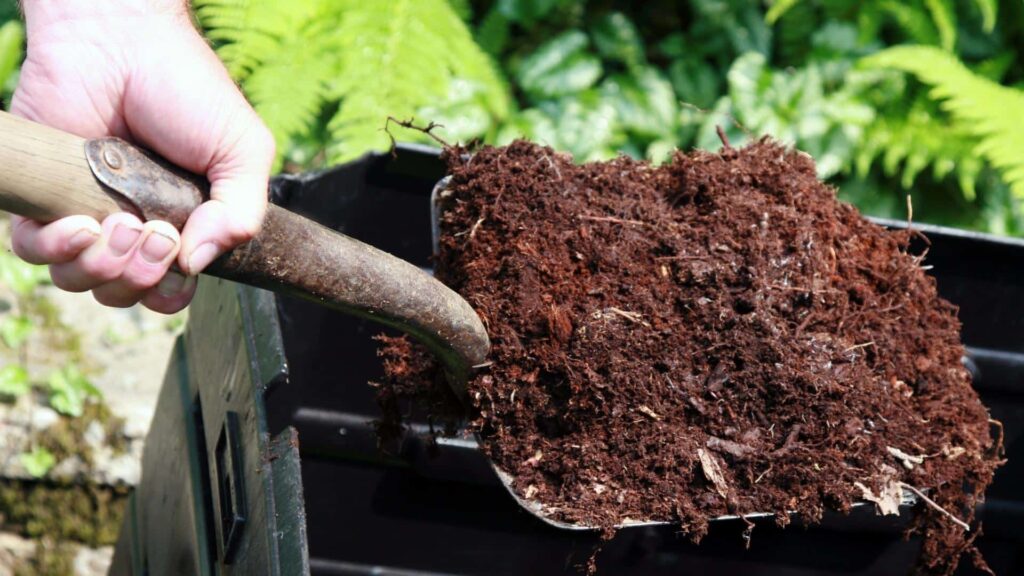
Join the composting crew
Our recycled plastic compost bins are already used in many allotments and private domestic gardens up and down the UK. John Robertson recently ordered two of our compost bins for his garden in Wales, and had this to say about the product:
“We decided to go with British Recycled Plastic because the products looked like they would last a long time and we liked the fact they are made here, so not being imported from around the world. We have recently retired so want products that won’t need replacing in the long-term.
“I liked the compost bins as they are made from commercial-grade material, whereas wood just rots in the end. The lids are good – heavy enough that they won’t blow away – and the whole thing looks neat and unobtrusive. As the bins are black, made from thick material and have lids, I’m expecting the contents to compost down quicker.
“Looking forward to the coming year, lots to compost and nice to know it’s not going to fall apart in several years’ time!”
Why British Recycled Plastic?
By choosing British Recycled Plastic, you’re making a making a hugely positive change for the planet and actively helping in the fight against climate change. So why not get on board?
Our products can be seen in an array of locations up and down the country, from parks and playgrounds, to wetlands and nature trails. Some of our prestigious customers include the NHS, the National Trust, the MoD, and various school and universities throughout the UK.
We offer a wide range of products that are not only incredibly tough and durable, but actively help to dismantle the UK’s domestic waste mountain and keep plastic out of landfill.
Our recycled plastic is completely rot-proof, splinter-proof and maintenance-free and it comes with a 25-year guarantee. This means that year after year, it will keep its good looks and robust functionality without needing anything other than an occasional wash down.
We’re proud of how our role in the world of recycling is helping to reduce domestic waste and create products which are useful, long lasting and beautiful. Engineered from 100% British waste, our products are supplied to thousands of organisations and private homes across the UK: we believe they are the very best money can buy. We’re making waste wonderful.
For a closer look at how our products are made, check out the manufacturing video here.
Visit British Recycled Plastics Webshop
Get in touch with our friendly and knowledgeable team by phone or email: 01422 419 555 [email protected]

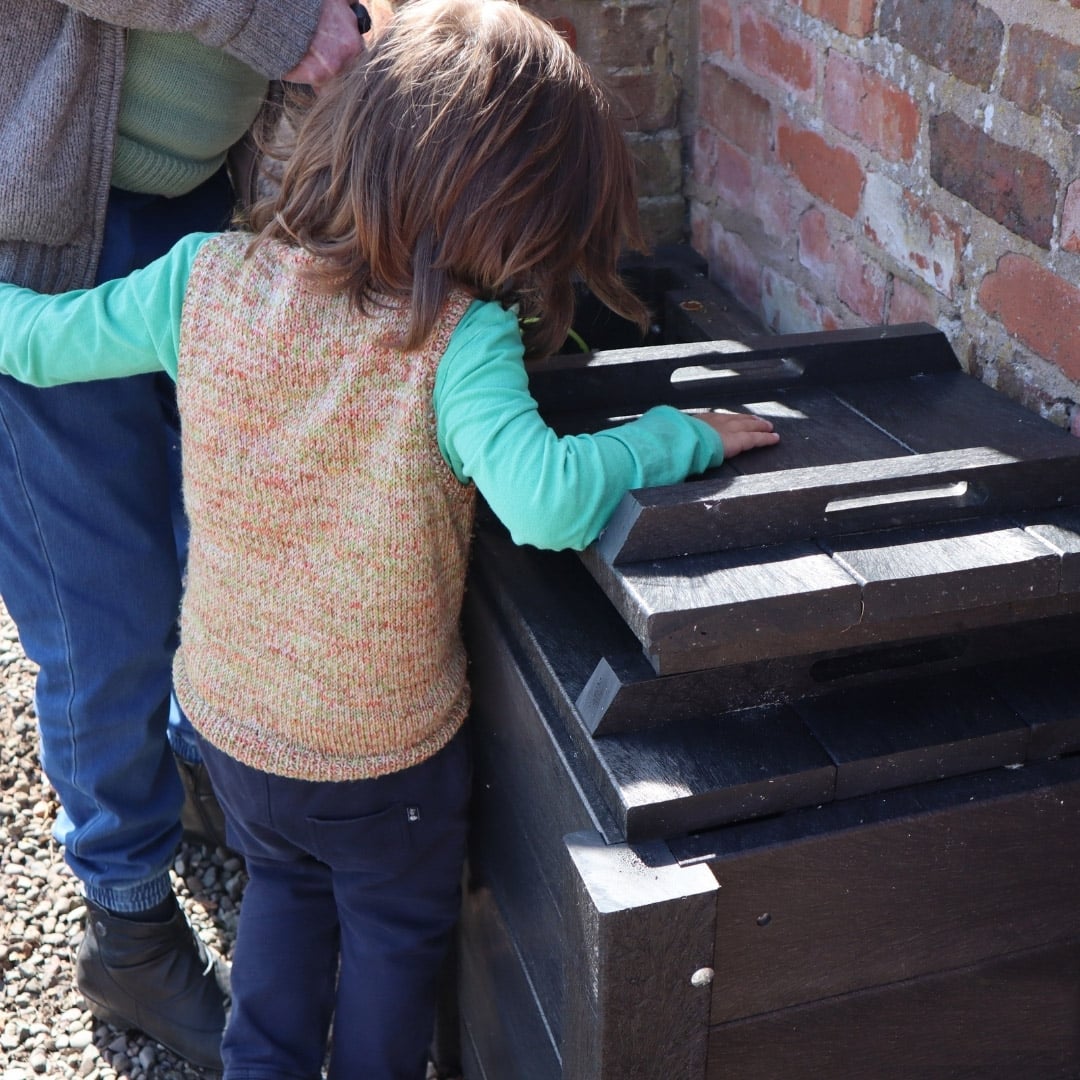

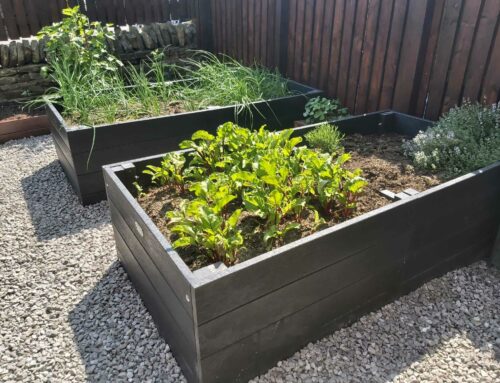
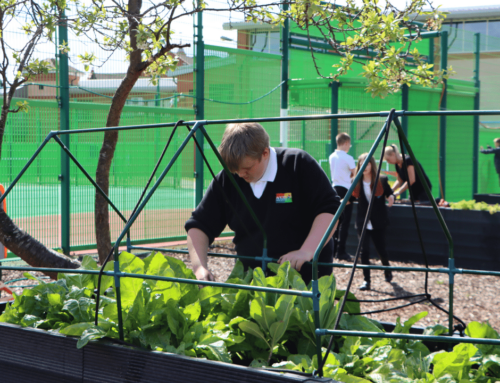
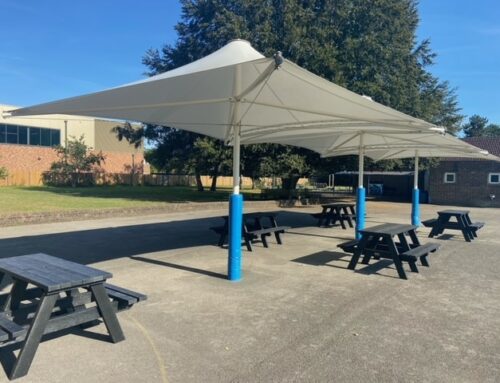








Leave A Comment
You must be logged in to post a comment.